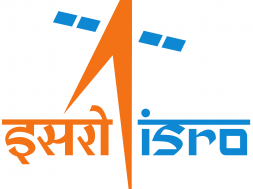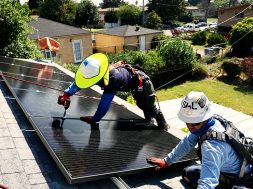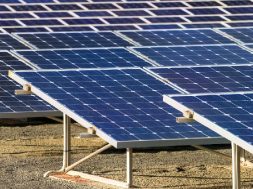
Why tax exemptions for off-grid solar are direct investments in energy access
It recently struck me how mature off-grid solar has become during a recent conversation with Lawrence, the center’s proprietor. As I congratulated him on the impact that his business was having on the community and commented on how glad he must be to finally be connected, he quickly corrected me that his entire facility was running on solar. With the solar panels not immediately visible, his entire facility was seamlessly running and operating from a small component based solar system with no visible loss of service for his and his clients’ businesses.
Off-grid solar offers opportunities to communities with no or weak grid access
As I read the findings from GOGLA’s Powering Opportunity report, I am excited about the possibilities our sector is offering to communities with no or weak grid access. As I think about Lawrence’s facility, the finding that 58% of solar home system owners are reporting a rise in economic activity, with improvement in income and job opportunities resonates strongly watching the businesses that his facility is supporting. Looking at how his business has become the center of the community, with neighbors congregating in the evening to watch the latest national news, and to watch soccer on the weekends, it is clearly true that solar customers have more light hours and time thanks to their solar home system for both business and other family activities.
As I have engaged with public sector officials across the East African Community, I am heartened by their strong commitment to vision of delivering real economic development and growing economic opportunities for their citizens. ‘Powering Opportunity: The Economic Impact of Off-Grid Solar’, released by GOGLA last week, is a resounding validation to the efforts of energy and finance officials across the EAC to stimulate economic development and improve the lives of their people by increasing energy access, leveraging appropriate solutions. Treasury officials worry about numbers, and for our industry, we can now point to the numbers.

Solar brings economic opportunities to communities across East Africa. Photo: Solarkiosk
Countries across East Africa have embraced off-grid solar
While the success of the off-grid solar sector across East Africa today has been built on innovations in business and technology and the strong support for the sector, such as the Customs Union and Common External Tariff established in 2005, we also recognize that the numbers of households still without energy access across much of East Africa and the developing world show that more must be done. Cost remains a key barrier for rural off-grid communities. Affordability is an important factor that matters not just to off-grid companies as they seek new customers, but to governments whose people desperately need the economic and social benefits of reliable energy access.
Looking across East Africa, it is clear this industry has matured and that with increased competition, only the most efficient companies providing exemplary products and services will succeed. However, while the sector works hard to offer the best product at the best price to customers, duties and taxes will always be a significant component of the price to the consumer. Countries across East Africa have embraced off-grid solar as a vital part of their electrification strategies. As we look towards achieving universal energy access within the individual national target dates, we believe that continuing import duty and VAT exemptions are essential direct investments in lowering product costs and increasing access.
Off-grid solar is the right solution to reach a majority of rural off-grid communities
Energy access is a social and economic development imperative for all countries. As public sector officials wrestle with delivering on the universal access targets represented by UN Sustainable Development Goal 7, embracing private sector contributions is essential. Through business and technology innovations, off-grid solar companies are reaching unserved communities today and for the near future – reaching those limited by public sector resources. Off-grid solar remains an emergent sector and, like all private enterprise, cannot serve unviable markets. True public and private sector engagement and partnership can help ensure that all citizens, regardless of where they live, be served. Today, off-grid solar remains the right solution to reach the majority of these communities and markets.
Powering Opportunity: The Economic Impact of Off-Grid Solar
This new report from GOGLA brings positive news that households using small scale-solar power in East Africa are reporting a rise in economic activity, with improvement in income and job opportunities. It demonstrates the economic benefits of off-grid solar power in the developing world.
Nearly 60% of off-grid solar owners undertake more economic activity within just three months of using a solar home system as they work longer, start businesses or get a new job.
It comes as global leaders gather to discuss how to meet the world’s Sustainable Development Goals (SDG’s) at the UN’s High Level Political Forum in New York (8-18th July 2018). The group is seeking insight on how to meet SDG’s including SDG7 ‘Ensuring access to affordable, reliable, sustainable and modern energy for all by 2030’.
Koen Peters, Executive Director of GOGLA said:
“The net economic and social benefits off-grid solar are a huge opportunity for national governments of the developing world. We call on policy makers, treasury and energy departments to work together with off-grid companies, banks and institutions to breakdown barriers to off-grid solar and build a pathway to accelerate energy access.”
Currently, 1 billion people across Africa and Asia have no access to electricity. With falling prices, increased efficiency and financial innovation, such as pay-as-you-go consumer finance, over 120 million people have now shifted from toxic kerosene lamps, candles and diesel generators to clean off-grid solar electricity since 2010.
The research, funded by The UK’s Department for International Development (DfID) and conducted by Altai Consulting, was based on data collected from over 2,300 small-scale pay-as-you-go (PAYG) solar owners in Kenya, Mozambique, Rwanda, Tanzania and Uganda in Spring 2018.
For more information please see below link:













